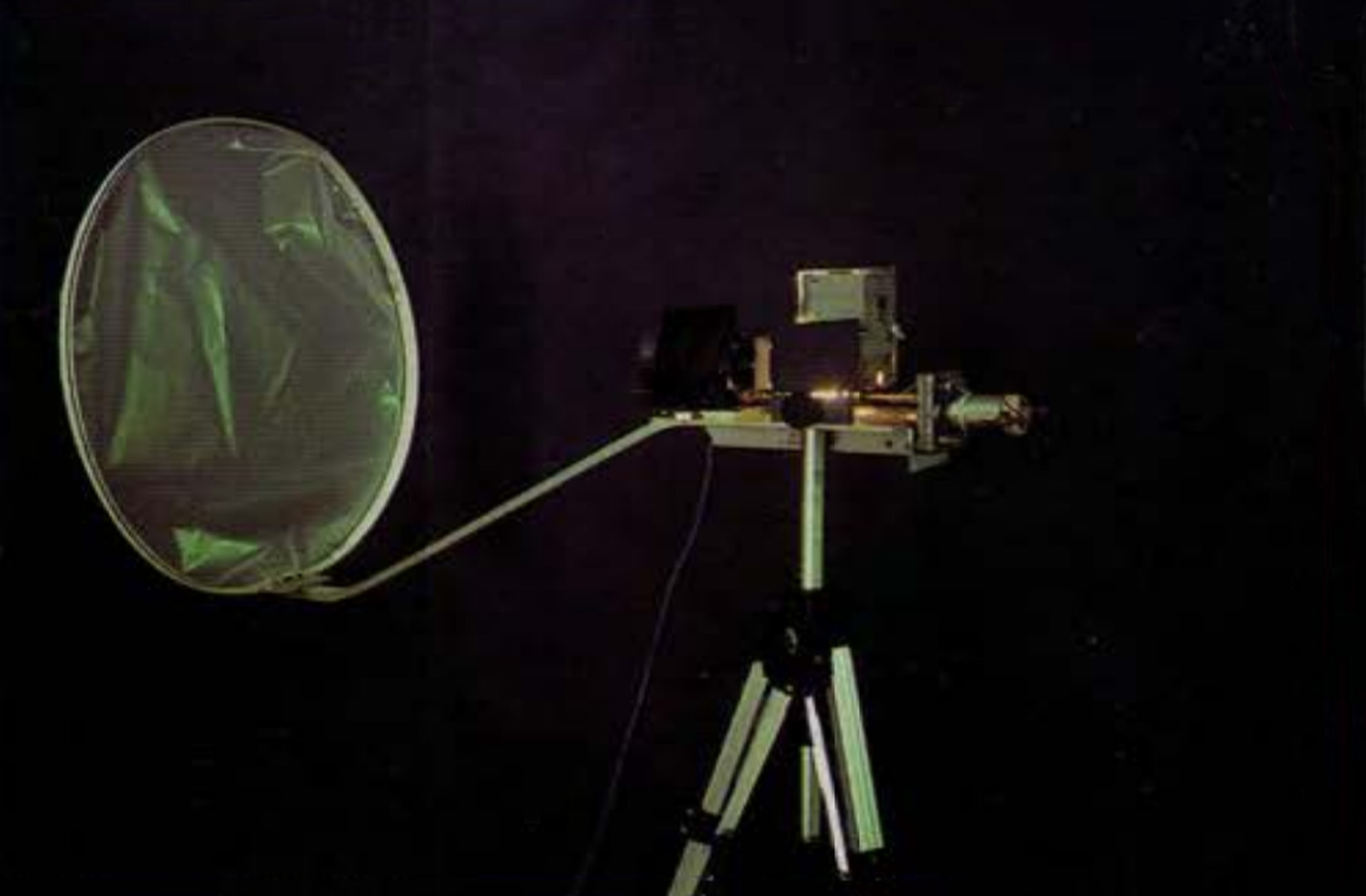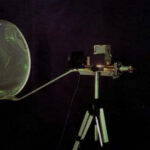“The Instrument for Illuminating the Future” by Graham Harrison
Title:
- The Instrument for Illuminating the Future
Artist(s) and People Involved:
Exhibiting Artist(s):
Symposium:
Artist Statement:
The discarded parts of a microfilm printer are assembled together on a photographic tripod to create a device which attempts to demonstrate an alternative thinking. A thinking which does not require an historical construct. Modifications have been made to the printer so that a computer graphic which has been placed in the optical centre of the projection plane can be projected onto a screen symbolising the future. The image is reversed and rotated by the motorised optics of the printer components The graphic represents both a human component and a physical component through the choice of colour and design. The graphic is rotated slowly around the optical axis of the projector to symbolise the nature of the human world.
The Instrument for Illuminating the Future deals with the idea that humans perceive the world around them in an historical fashion. It is not necessary for computers to do this: My work confronts this paradigm by using the discarded parts of a microfilm printer to project a computer-graphic into the future. The microfilm construct requires the future. Science is now evolving unique constructs where these questions can be solved using mathematical logic. I believe computers will develop new algorithms currently not accessible to humans. Algorithms which are based on solving the questions raised in my work. The metaphysical point addressed by the idea of projecting into the future would become a model for non-human thinking where the solution of the question can only be resolved using processes which now appear alien. Humans will soon have to accept that the future can be mapped and that the thinking behind these new equations is not linked to a human’s ability to perceive. Humans may not be able to understand this data thinking, at least with the constructs we now use. Humans, therefore, must apply themselves to the task of formulating a kind of Godel thinking which can utilise the advances of computers and science not from the point of view of harnessing them but understanding this new knowledge disclosed by them.






